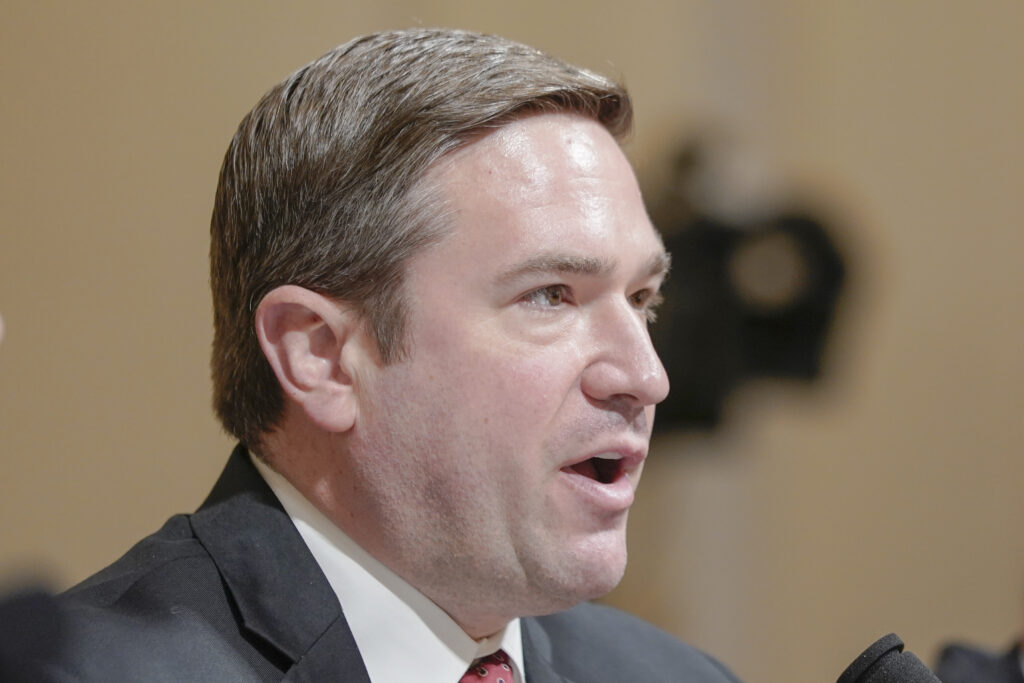
Justice Samuel Alito on Wednesday wrote a dissent that stood up for defenders of free speech after the majority on the Supreme Court declined to weigh the merits of a major case accusing the Biden administration of attempting to censor users on social media.
The lawsuit known as Murthy v. Missouri alleged the Biden administration violated the First Amendment with several meetings in 2021 in which officials encouraged major social media platforms — primarily Twitter, Facebook, and YouTube — to suppress posts about COVID-19 and vaccines that did not conform with U.S. government health guidelines. But the 6-3 majority opinion authored by Justice Amy Coney Barrett punted on the dispute by finding that plaintiffs lacked standing to sue the administration.

Morgan Marietta, a dean at the University of Austin’s Center of Economics, Politics & History, told the Washington Examiner that the Murthy ruling is a “part of a trend on the Court to deny standing in order to dodge difficult constitutional questions.”
“The Court has a duty to vindicate constitutional rights, no matter how politically fraught, and Justice Alito writes in dissent that the Court ‘shirks that duty,’” Marietta said.
Conservatives and free speech proponents largely expressed disappointment on Wednesday in the outcome, including independent presidential candidate Robert F. Kennedy Jr., who claimed the Supreme Court “got it wrong” on Wednesday in a post on X, formerly known as Twitter.
“Justice Alito’s dissent outlines the correct analysis, finding standing and First Amendment violations on the merits. I will continue to fight for free speech in the courts and on the campaign trail,” Kennedy wrote.
Kennedy on Wednesday also said he believed his own lawsuit, known as Kennedy v. Biden, which alleges the federal government violated the First Amendment by inducing social media companies to censor statements against vaccines, would be an appropriate vehicle to challenge the alleged censorship efforts by the Biden administration.
However, U.S. District Judge Terry A. Doughty of the Western District of Louisiana ruled in the Kennedy case that the injunction against the White House would be stayed pending the outcome of the Murthy case. Because of the ruling against Missouri and the plaintiffs who sued, Marietta said, “I am not sure at this point why it would have a different outcome.”
Alito’s dissent was joined by fellow Republican-appointed Justices Neil Gorsuch and Clarence Thomas. Much of his writings in the dissent focused on whether the Biden administration did indeed engage in impermissible censorship, in addition to the claims from plaintiff Jill Hines, a healthcare activist.
“Hines showed that, when she sued, Facebook was censoring her COVID-related posts and groups,” Alito wrote. “And because the White House prompted Facebook to amend its censorship policies, Hines’s censorship was, at least in part, caused by the White House and could be redressed by an injunction against the continuation of that conduct. For these reasons, Hines met all the requirements for Article III standing.”

GOP Missouri Attorney General Andrew Bailey vowed that he would not give up the fight against censorship efforts despite his loss at the high court on Wednesday.
“We are going back to the district court to obtain more discovery in order to root out Joe Biden’s vast censorship enterprise once and for all,” Bailey added.
Meanwhile, other First Amendment advocacy groups, such as the Knight Institute, expressed disappointment in the decision but said that the majority opinion got it right based on the “Court’s account of the facts,” according to Alex Abdo, the litigation director for the Knight Institute.
“Still, it is disappointing that we have so little guidance on the limits that the First Amendment places on government efforts to pressure social media platforms into suppressing speech,” Abdo added.
The decision on Wednesday stands in contrast to another government coercion case that was decided by a 9-0 vote in May, in which the justices sided with the National Rifle Association‘s claims that a former superintendent of New York‘s Department of Financial Service illegally retaliated against the pro-Second Amendment group after the Parkland, Florida, high school mass shooting that left 17 people dead.
CLICK HERE TO READ MORE FROM THE WASHINGTON EXAMINER
“The other ruling this year about government coercion of speech (NRA v. Vullo) came out the right way only because the government’s actions were so blatant they could not be ignored,” Marietta said.
Alito’s dissent included a a stark warning to free speech advocates, saying the outcome in Murthy “permits the successful campaign of coercion in this case to stand as an attractive model for future officials who want to control what the people say, hear, and think.”






